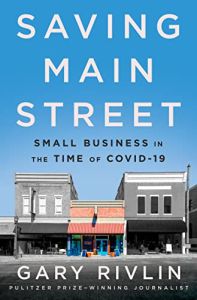With profound eloquence and humanity, Pulitzer Prize–winning journalist Gary Rivlin exposes the challenges faced by small businesses before and during the COVID-19 pandemic, including those created by consumer trends and government policies. He profiles the financial risks faced by three micro-enterprises in Pennsylvania – a restaurant, a hair salon and a gift shop. Rivlin grippingly explores contradictions in government policy, racial and class fissures, and the tremendous impact “mom-and-pop” shops have on US society and the economy. He celebrates their entrepreneurial grit and exposes the government’s inconsistent efforts to contain the economic impacts of the pandemic.
Seeking new work opportunities, immigrants flocked to Pennsylvania’s resurgent economy in the 2000s.
The towns around Scranton, Pennsylvania once depended on coal. Coal mining in the region, which includes the towns of Tunkhannock and Old Forge, began declining in the late 1950s. There wasn’t much left by the late 1970s. People and businesses fled these towns until help arrived in the 1990s. Owing to the area’s proximity to Interstate 80 and the cities of New York and Philadelphia, AutoZone, Hershey and other distribution centers moved there. Amazon opened a huge warehouse, and Cargill a meat production and slaughtering plant.
This new economy delivered thousands of jobs that paid poorly but restored the region and its towns. Main Street bustled with independent shops, as the national chains set up operations on the towns’ fringes. Jobs attracted immigrants, mainly from Latin America and the Caribbean, who joined the established – and sometimes hostile – Italians, Irish and Poles, whose parents and grandparents made similar journeys decades before.
Even before COVID-19, small ...









Comment on this summary